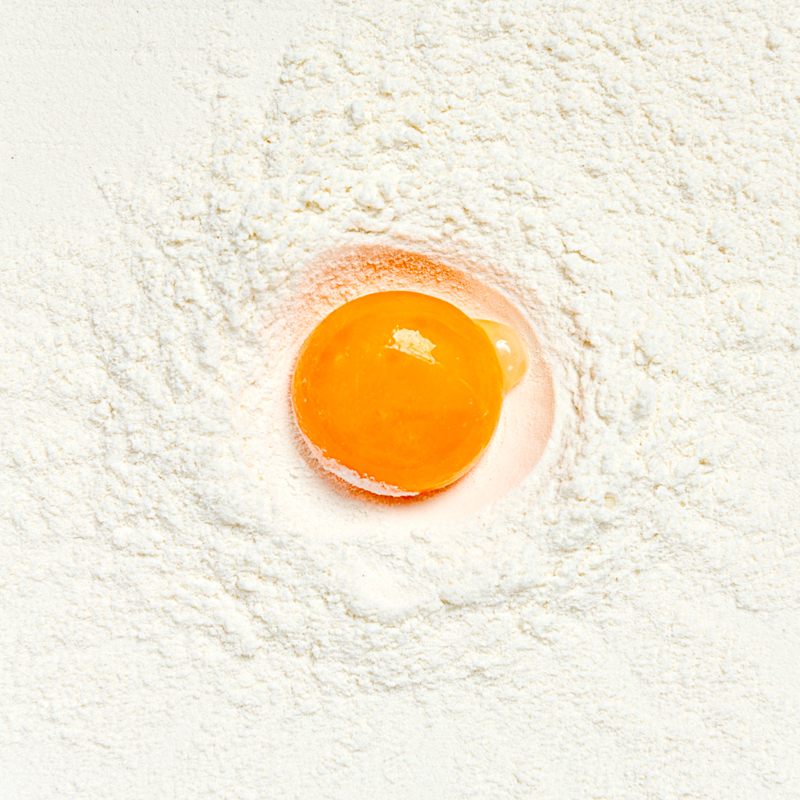
100 gr |
-- |
|
|---|---|---|
| Carbohydrate (gr) | 15.04 |
4928.47 |
| Protein (gr) | 3.59 |
1176.23 |
| Fat (gr) | 12.46 |
4083.43 |
| Fiber (gr) | 1.36 |
445.97 |
| Cholesterol (mg) | 14.64 |
4795.8 |
| Sodium (mg) | 325.27 |
106557.75 |
| Potassium (mg) | 392.16 |
128471.4 |
| Calcium (mg) | 78.15 |
25603.27 |
| Vitamin A (mg) | 46.04 |
15084.01 |
| Vitamin C (mg) | 6.16 |
2019.31 |
| Iron | 0.62 |
203.1 |
Egg yolk is a nutrient-rich component of eggs, containing a variety of essential vitamins and minerals that are vital for overall health. It is particularly rich in healthy fats, proteins, folic acid, phosphorus, iron, and zinc, making it a valuable addition to a balanced diet when consumed in moderation.
The calorie content of egg yolk is 322 calories per 100 grams.
Egg yolks are an excellent source of:
Egg yolk is notably high in cholesterol, containing approximately 186 milligrams per yolk. While cholesterol is necessary for the body to produce hormones and maintain cell membranes, excessive intake may be problematic for individuals with pre-existing cholesterol concerns.
To reduce the impact of cholesterol while still benefiting from the nutrients in egg yolks, it’s advisable to consume them with egg whites, which are cholesterol-free and rich in protein. This combination provides a balanced intake of essential nutrients and helps maintain a healthier dietary profile.
Egg yolks can be enjoyed in various ways, such as in boiled eggs, omelets, or baked goods. However, moderation is key, especially for individuals with high cholesterol levels or heart disease. For most healthy adults, consuming up to one egg per day is generally considered safe and beneficial.
A single egg yolk contains approximately 55 calories, primarily from fats. When combined with the 17 calories from an egg white, a whole egg provides about 72 calories, making it a nutrient-dense and low-calorie food option.
Egg yolk is a nutritional powerhouse that offers numerous health benefits when consumed in moderation. Its rich composition of essential nutrients makes it an excellent addition to a balanced diet. To maximize the benefits and minimize the potential risks, pair egg yolks with egg whites and consult with a healthcare professional if you have dietary concerns.